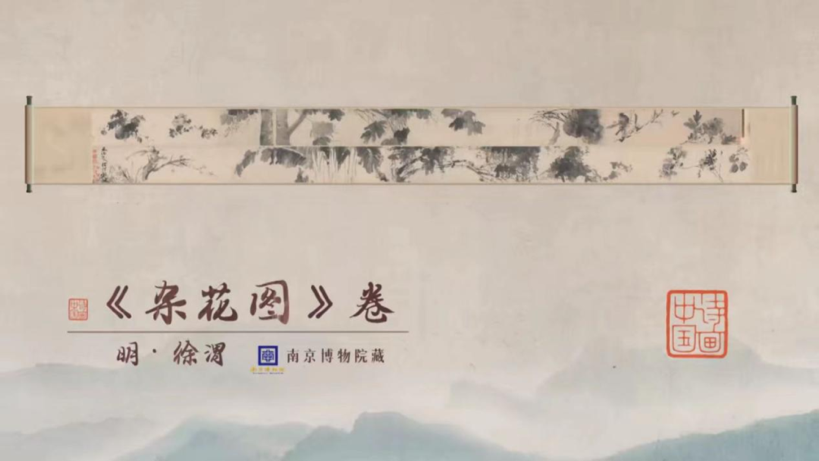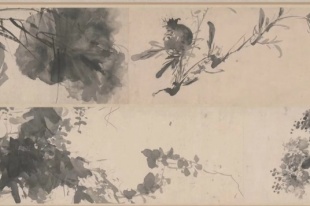Reputed artist believes all plants are created equal


Who says Chinese literati painters only love the "Four Gentlemen" (Chinese plum blossoms, orchid, bamboo, and chrysanthemum)? Who says that peony flowers always have to look dignified and graceful in literati paintings? Who says that lotus leaves always have to be presented in a fresh and refined style by literati painters?
Xu Wei, a famous calligrapher and artist from the Ming Dynasty (1368-1644), was highly esteemed for his freehand brushwork and preferred wildflowers like lentils, pumpkins, and wisteria. In his view, all plants are created equal and worth painting, a philosophy well embodied by his representative work, "Miscellaneous Plants."
Produced by China Media Group, the cultural program "China in Poetry and Painting" invited renowned pianist Lang Lang to play a piece that synthesizes the Chinese folk song "Moli Hua" (Jasmine Flower) with Claude Debussy's "Moonlight" and Edvard Grieg's "Piano Concerto," thus translating the visual aesthetic of this ancient masterpiece into an exciting auditory sensation to give audiences a special treat.
Now housed at the Nanjing Museum, "Miscellaneous Plants" is Xu Wei's representative work of freehand brushwork in ink-wash painting. Not only did he depict 13 kinds of plants on the 10-meter-long scroll, including peony, pomegranate, wisteria, pumpkin, plum blossom, lotus leaves, and bamboo, but he intentionally changed their nature by painting them with ink and wash while eschewing most of the colors at his disposal.





































